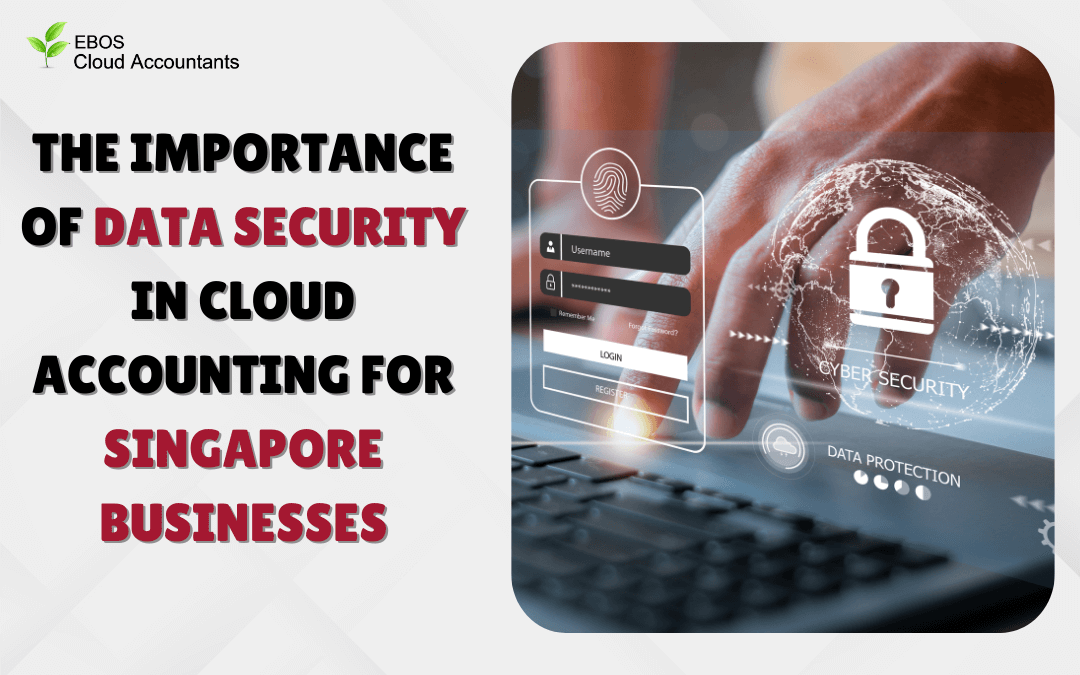With its flexibility, scalability, and efficiency, cloud accounting has emerged as a vital tool for Singaporean enterprises in an increasingly digital environment. But as more businesses move their financial data to the cloud, it becomes more and more important to make sure data security is strong. Businesses must recognize the significance of data security in cloud accounting and take proactive measures to safeguard their money because sensitive financial information is at risk.
Why Cloud Accounting?
Through online platforms, cloud accounting enables organizations to manage their accounts in real-time, doing away with the need for laborious paperwork and providing access from any location with an internet connection. Cloud accounting offers major benefits to small and medium-sized businesses (SMEs) in Singapore, including reduced costs, automated repetitive chores, and smooth teamwork. Though the advantages are clear, moving to cloud-based systems also brings with it new security risks.
The Importance of Data Security
Data security in cloud accounting is vital for several reasons:
- Protection of Sensitive Financial Information: Transaction histories, salary data, client information, and other private financial data are all stored in cloud accounting systems. There could be monetary damages, legal repercussions, and reputational harm if this data is compromised.
- Compliance with Local Regulations: Enterprises operating in Singapore must adhere to stringent data protection legislation, including the Personal Data Protection Act (PDPA). Businesses must incorporate strong data security measures into their cloud accounting procedures since noncompliance with these requirements can result in significant fines and penalties.
- Maintaining Customer Trust: Customers entrust companies with their financial and personal data. This trust can be undermined and long-term connections harmed by a data breach. By placing a high priority on data security, businesses may show that they are dedicated to safeguarding client information and upholding trust.
Common Threats to Cloud Accounting Security
Comprehending the prevalent risks to cloud accounting security can assist enterprises in strengthening their data protection measures. Among these dangers are:
- Cyberattacks: Hackers usually target cloud-based services in an attempt to obtain private information. Ransomware, distributed denial-of-service (DDoS) assaults, and phishing are examples of frequent attacks.
- Insider Threats: Workers or contractors who have access to cloud accounting systems may intentionally or unintentionally expose personal information.
- Data Leakage: nadequate access restrictions and unencrypted data are two examples of poor data management practices that can lead to unintentional data breaches.
- Weak Passwords and Authentication: Unauthorized users may find it simpler to access cloud accounting systems if there is a lack of multi-factor authentication or weak passwords.
Best Practices for Securing Cloud Accounting Data
The following best practices should be implemented by Singaporean enterprises to protect their financial data:
- Choose a Reputable Cloud Accounting Provider: Choose a supplier who has a proven track record of data security, adherence to pertinent laws, and high encryption standards. Make sure they are using the most recent security protocols by researching their security policies.
- Implement Multi-Factor Authentication (MFA): MFA requires users to authenticate with various forms of information before granting access to the cloud accounting system, adding an extra degree of security. This lowers the possibility of unwanted entry.
- Encrypt Sensitive Data: Make sure that all critical financial information is encrypted while it’s in motion and at rest. A further line of defense against data intrusions is provided by encryption, which jumbles data and renders it unintelligible to unauthorized users.
- Regularly Update and Patch Software: Hackers may be able to take advantage of security holes in outdated software. Patching and updating cloud accounting software on a regular basis helps plug these security holes and protect your data.
- Conduct Regular Security Audits and Training: Conduct frequent vulnerability audits of your cloud accounting system and teach staff members on recommended practices for data security. By doing this, you can make sure that everyone in the company is informed about the most recent security risks and understands how to counter them.
- Limit Access to Sensitive Information: Apply the least privilege (PoLP) concept by granting access to confidential financial information solely to staff members who require it in order to carry out their duties. As a result, there is less chance of unintentional data breaches and insider attacks.
- Monitor and Log Access: Keep an eye on who is accessing your cloud accounting system and when by using monitoring tools. In the event of a security incident, access logs can be quite helpful in identifying suspicious activity and offering insightful information.
The Future of Cloud Accounting Security
The security methods that companies use to safeguard their cloud accounting data must also change in tandem with the ongoing evolution of cyber threats. Security systems are integrating emerging technologies like machine learning (ML) and artificial intelligence (AI) to detect and react to threats instantly. To ensure the integrity of their financial data, Singaporean enterprises must keep up with the most recent security developments and update their security procedures on a regular basis.
Conclusion
Cloud accounting offers evident advantages for Singaporean organizations, including improved efficiency, lower expenses, and enhanced teamwork. These benefits do, however, come with a responsibility to safeguard private financial data from various online risks. Through the implementation of strong protective measures and a priority of data security, businesses can preserve their customer confidence, adhere to local rules, and secure their cash. Success in the cloud accounting market will continue to depend on a proactive approach to data protection as the digital world changes.
Check out our website at https://ebos-sg.com/ to explore more articles and discover how our Cloud Accountant Services can support you on your business.







